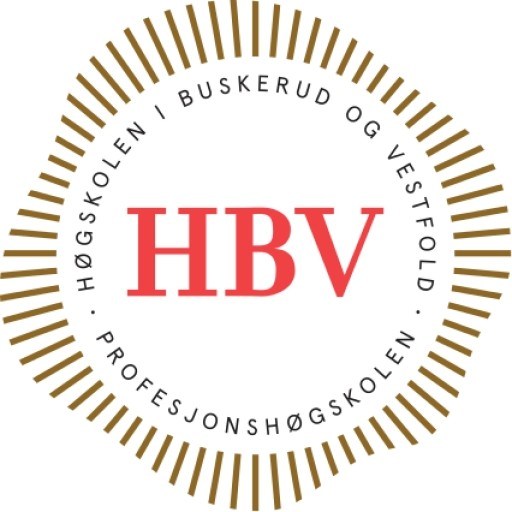Photos of university / #Norduniversitet
Energy Management is a comprehensive academic program offered at Nord University, designed to equip students with the knowledge and skills necessary to address the global challenges related to energy production, efficiency, and sustainability. This programme combines theoretical understanding with practical applications in the field of energy systems, policy development, environmental impact, and technological innovation. Throughout the course, students will explore various aspects of energy management, including renewable energy sources, energy conservation strategies, and the integration of sustainable practices in industrial and commercial settings. The curriculum emphasizes developing critical thinking and problem-solving skills through project-based learning, internships, and collaborations with industry partners. Students will gain a solid foundation in engineering principles, environmental science, and economics, enabling them to analyze energy systems and propose effective solutions that balance technical feasibility with economic viability. The programme also focuses on the development of leadership and communication skills, preparing graduates to take active roles in shaping a sustainable energy future. Emphasizing innovation and research, students will learn about the latest advancements in smart grids, energy storage, and digitalization of energy systems. The program is suitable for individuals passionate about making a difference in how energy resources are managed and who aspire to contribute to sustainable development, climate change mitigation, and the transition to low-carbon energy solutions. Graduates of the Energy Management programme will be well-prepared for careers in energy companies, consulting firms, governmental agencies, and research organizations, playing crucial roles in optimizing energy use, reducing environmental impact, and fostering a resilient and sustainable energy infrastructure. This degree offers a unique opportunity to engage with cutting-edge topics in energy technology and policy, ensuring students are prepared for the dynamic and evolving energy sector worldwide.
Energy Management is a comprehensive degree program designed to equip students with the knowledge and skills necessary to understand and address the complex challenges of energy production, distribution, and efficiency. Throughout this program, students will explore a wide range of topics including renewable energy sources, energy systems analysis, sustainable development, and environmental impact assessment. The curriculum combines theoretical foundations with practical applications, ensuring graduates are well-prepared to contribute effectively in various sectors such as energy companies, consulting firms, government agencies, and international organizations focused on energy policy and sustainability.
Students will engage in coursework covering the principles of energy technology, energy economics, and management strategies. They will learn about energy policy frameworks, legislation, and the social implications of energy use. The program emphasizes the importance of sustainability, encouraging students to develop innovative solutions for reducing energy consumption and integrating renewable energy sources into existing infrastructures. Practical skills will be developed through project work, case studies, and possibly internships, allowing students to gain real-world experience in energy management practices.
Furthermore, the program fosters interdisciplinary cooperation, integrating knowledge from engineering, environmental science, economics, and policy studies. Students will have opportunities to participate in research projects, seminars, and workshops led by industry experts. Upon completion, graduates will possess the analytical tools and strategic understanding necessary to optimize energy systems efficiently, promote sustainable resource use, and support the transition to a greener economy. The program prepares students for a dynamic career in one of the most vital fields of the 21st century, promoting innovative thinking and responsible leadership in energy management.
The financing options for the Energy Management bachelor's degree program at Nord University are primarily designed to support both Norwegian and international students. Norwegian students typically have access to state-funded education with little or no tuition fees, depending on their residency status and the specific regulations in place during their studies. For local students, the Norwegian government offers various types of financial support, including student loans and grants through the Norwegian State Educational Loan Fund (Lånekassen). These financial aids are generally available to students enrolled in full-time degree programs and are designed to cover living expenses, tuition (if applicable), and study materials.
International students, on the other hand, are usually required to pay tuition fees, which vary depending on the program and year of study. The exact fee structure for the Energy Management program at Nord University is not specified on the university’s official website; therefore, it is advised that prospective students consult the admissions office or the university's official website for precise fee information.
Additional financing options may include scholarships, which Nord University offers based on academic merit or specific criteria such as country of origin, programme of study, or financial need. Students are encouraged to seek out external scholarships provided by government agencies, private foundations, or international organizations that support studies in energy management and sustainable development.
Part-time work opportunities are available for international students in Norway, subject to work permit regulations, allowing students to supplement their income during their studies. Student employment can help reduce financial burdens and provide practical experience related to their field of study.
Some students may also consider private student loans from financial institutions, although these typically require repayment and may involve interest charges. It is recommended that students plan their finances carefully and explore all available funding sources well in advance of commencing their studies.
Overall, financing an Energy Management degree at Nord University involves a combination of governmental support, university-funded scholarships, external funding, and personal or family contributions. The exact financial plan will depend on individual circumstances, including residency status, nationality, academic achievement, and available external resources. Students should consult official university resources and financial aid offices for personalized guidance and up-to-date information on available funding options.
Energy Management at Nord University is a specialized degree program designed to equip students with the technical knowledge and managerial skills necessary to optimize energy use and enhance sustainability across various sectors. The program typically spans over a specified duration, often ranging from 1.5 to 2 years for a master's level qualification, and is delivered through a combination of lectures, practical sessions, projects, and internships. Students enrolled in this programme gain in-depth understanding of energy systems, renewable energy sources, energy efficiency measures, and the regulatory frameworks governing energy markets. The curriculum is structured to address current and emerging challenges in energy management, including climate change mitigation, technological innovations, and policy developments. Students are encouraged to develop problem-solving capabilities and analytical skills essential for designing and implementing efficient energy solutions in industry, commercial entities, and public sector organizations. Practical training is a core component, often involving hands-on experience with energy management tools, software, and real-world case studies. The program also places a strong emphasis on sustainable development, encouraging students to pursue environmentally responsible energy practices. Graduates of the program are prepared for careers in energy consulting, project management, policy analysis, and roles within utility companies, government agencies, and private enterprises committed to sustainable energy use. The university collaborates with industry partners to ensure that the curriculum remains aligned with current market needs and technological advances. Opportunities for international exposure, such as exchange programs and internships abroad, are often available, fostering a global perspective on energy management issues. Admission requirements typically include relevant bachelor’s degrees, and the program may be delivered in Norwegian, English, or both, depending on the specific intake. Graduates can pursue further research or enter the workforce equipped with competencies to influence energy policies, innovate sustainable solutions, and contribute to the transition towards a low-carbon economy.





